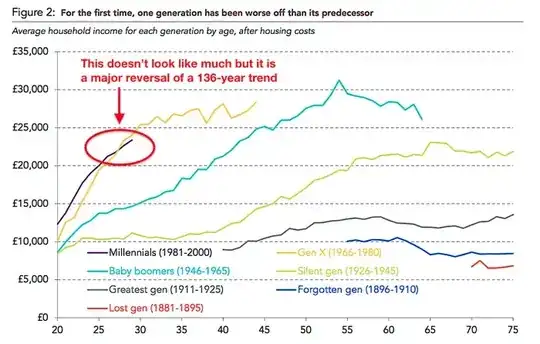A 2017 Business Insider article claims that, in the UK:
for the first time in more than 100 years the current generation of workers — millennials — are doing worse than the generation before them, Generation X.
In particular, a chart compares the average household income, after housing costs, for Millennials (born 1981-2000) and Gen X (born 1966-1980), and shows it is crosses lower at about the age of 28 years.
Is this true?
